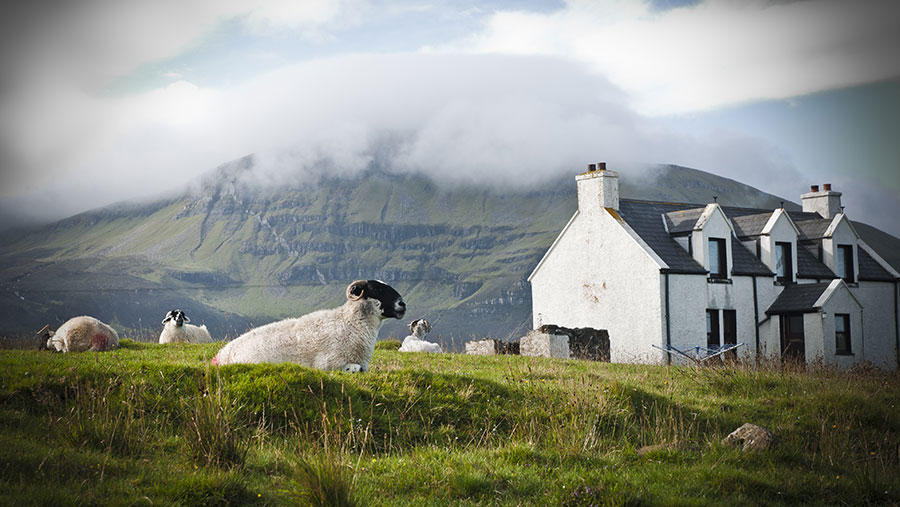Editor’s view: Scots government has learned nothing from English
 © Joaquin Corbalan/Adobe Stock
© Joaquin Corbalan/Adobe Stock “It’s déjà vu all over again”, was the old saying that sprang to mind when reading about Scottish farming’s frustrations over the persistent lack of detail from their government on future farm policy.
Farmers and crofters had hoped that rural affairs secretary Mairi Gougeon’s speech at last week’s NFU Scotland conference would be the perfect set-piece moment to unveil with a flourish much more clarity on their post-BPS payment system.
See also: Editor’s view: Farming success linked to output diversity
Yet they were doomed to the same disappointment that plagued English farmers grasping for insight into the Environmental Land Management (ELM) scheme throughout last year, with just a few more crumbs, such as the risible £250 animal health and welfare payment.
And with the attention of the political class in Holyrood now focused on finding Nicola Sturgeon’s successor, the parallels with the turmoil of Westminster in 2022 become even clearer.
A change of leader will, like in Westminster, lead to a cabinet reshuffle that could well mean more delays as a new rural affairs secretary pauses, takes stock, and maybe looks to do things differently.
Given how fond Therese Coffey is of travel – she has visited Brazil and the US so far this year, but still hasn’t confirmed which day she’s attending the NFU conference in Birmingham next week – perhaps she’ll offer to pop up and share some advice on coping with chaos.
And just as the NFU in England and Wales has grappled with how to be heard effectively on prioritising food production, so NFU Scotland has its own struggles too.
President Martin Kennedy’s decision to remain as co-chairman on the government’s Agricultural Reform Implementation Oversight Board (Ariob) – which advises on the direction of travel of farm policy – has attracted criticism from some.
“Better to have your enemies inside the tent pissing out than outside the tent pissing in,” American president Lyndon Johnson once said.
So by maintaining Mr Kennedy as joint leader of Ariob, has the Scottish government artfully constrained one of its biggest potential critics, or does it genuinely want farming’s voice properly represented?
Debate about which stance serves farming’s interests better has been robustly heard within the union’s ranks for at least a year, and was reportedly a contributing factor in the departure of NFU Scotland chief executive Scott Walker in November.
Despite repatriation of farm policy decisions from Brussels to Westminster and the devolved nations, this unrest exposes again that it is a mistake to believe that bringing farm policy decisions back to the UK has increased the farming industry’s ability to influence decisions.
And while union spats keep things interesting for onlookers, the truth is whether Mr Kennedy is in or out of one committee or another matters little – as he said in his own conference speech, the decisions are taken elsewhere.
It’s right to continue to fight for as much cash for our sector as possible, but too much attention on this stifles a necessary focus on what farms will need to do to survive without support.
Defra’s determination to impose BPS cuts in England while the ELM scheme only slowly took shape forced farmers to focus on survival without support, and there is no downside to a similarly frank assessment in all other parts of the UK.
It would be a sad day if Holyrood failed to recognise the benefits a thriving domestic agricultural sector can offer for food security and climate change mitigation.
It would be a sadder day if a single farm business went to the wall unnecessarily while waiting for the government to do the right thing.

